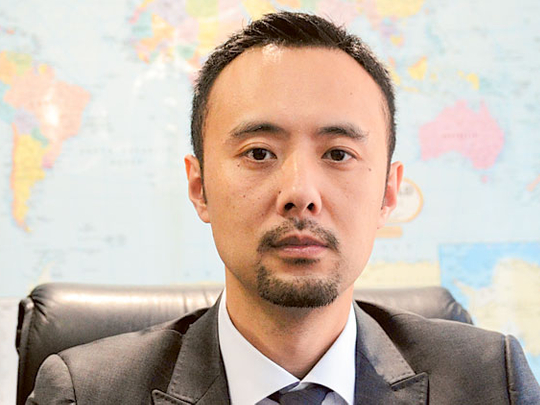
Dubai: Despite a recent spell of Western cyber security accusations, Huawei — one of the world’s largest vendors of information and communication technology (ICT) solutions — has come out of 2012 optimistic about the brand’s continued leadership in the industry.
Chinese telecommunication equipment manufacturers are facing the pressure, especially Huawei. It has grown as a low-cost alternative to many Western competitors and they are putting up more barriers. The one market that Huawei is not able to penetrate is the US.
Speaking exclusively to Gulf News, Shi Yaohong, President of Huawei Middle East, notes how today’s cyber security concerns are in fact a challenge for the entire ICT sector, and why increased competition within the industry should inspire innovation rather than national protectionism.
Gulf News: Moving into 2013, do you feel that the public’s attitude towards cyber security threats has become more critical than in recent years? Why?
Shi Yaohong: Cyber security is in fact one of the foremost issues being addressed by the international community in forums such as the United Nations and the International Telecommunications Union (ITU).
I think people have in fact become more aware of the threats out there today, and it is for this reason why I am concerned about recent developments in how the global community is responding to cyber security challenges — electing a stance of protectionism instead of a path towards global cooperation and dialogue.
Huawei had its fair share of criticism in 2012 following a report in the US on cyber intelligence. Did you see that as a fair evaluation of Huawei’s work?
Beginning in late 2011, the United States House Permanent Select Committee on Intelligence began what would be a year-long investigation into the US business interests of Chinese ICT companies — Huawei included — and their relationship with the Chinese government.
In late 2012, the Committee announced a report indicating that Chinese intelligence services could spy on the US by using the companies’ equipment, and that they should be barred from getting US contracts in future.
I believe that the Committee was rightly focused on the increasing threats to the security of telecommunications networks and critical infrastructure. However, while the focus of the Committee’s investigation was on companies with a headquarters in China, Huawei has dedicated itself over that same period of time to help the Committee better understand the facts about Huawei so that the focus of their attention can shift to the broader and real challenges presented by the globalisation of ICT supply chains — not just China-based companies.
Considering this, there is reason to suspect that these reports were intended to impede competition and obstruct foreign companies from entering into the US market. If we take Huawei as one example, one can easily find a trail of aggressive lobbying and de-positioning campaigns waged against the company by US competitors and protectionists.
Have you seen such reports have an impact on Huawei’s business in the Middle East?
We get more than 70 per cent of our revenues from foreign markets outside China. Within the Middle East, we have over a decade of experience establishing strong relationships with key operators such as etisalat, STC, Zain, du, Qtel and many more.
I think our partners in the UAE and abroad have realised that, with our legacy of success remaining as strong as ever.
How is Huawei going to solve the spy issue with the US and some Western countries this year?
We call on all policy makers to assess us and all telecoms firms objectively, fairly and on the facts – not on a company’s country of origin, politics, or on misinformation campaigns led by self-interested local firms.
Although a private company, we choose to reveal detailed financial and performance information with the public and will continue to do so within the US as in other markets.
Furthermore, we have directly created more than 1,800 jobs in the US and invested 17 per cent of our revenue from the US in local research and development. We have invested $230 million (Dh845.94 million)in the US in 2011 alone, and since our entry into the North American market in 2001, we have purchased technologies and services valued at over $30 billion from 280 suppliers in the US.
How is Huawei planning to penetrate the US market this year or will it shun the US market?
The US remains a very important market for us, both in terms of our existing partnerships and the value which we believe can add to the country’s ICT industry in future.
The aggressive lobbying and de-positioning campaigns have not only harmed us, but more importantly, they have harmed the healthy development of the industry chain, consumers’ hopes for more convenient and affordable broadband, as well as fair competition.
We understand that if we don’t live up to this expectation, our future development will be hindered and could strike a fatal blow to our global business operations. We would not jeopardise that global commercial success nor the integrity of our customers’ networks for any third party; government or otherwise.












